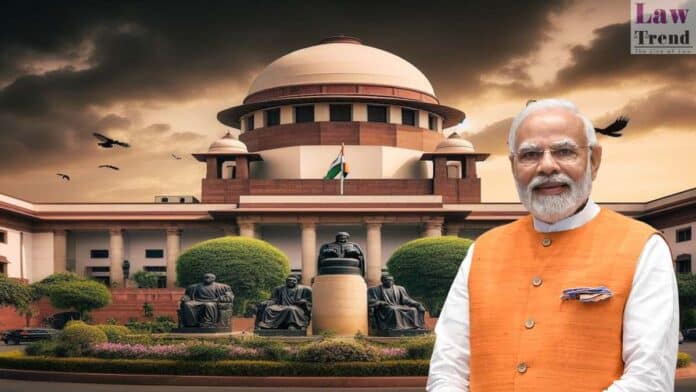The Supreme Court of India is poised to commemorate a historic milestone – its Diamond Jubilee – on January 28, marking 74 years since its establishment. The apex court, initially inaugurated in the Parliament building back on January 28, 1950, due to the absence of a dedicated Supreme Court building, is set for a grand celebration at the Additional Building Complex Auditorium.
In a significant moment for the Indian judiciary, Prime Minister Narendra Modi is scheduled to attend the Diamond Jubilee celebrations. Union Law Minister Arjun Ram Meghwal will also grace the occasion, underscoring the government’s support and recognition of the judiciary’s pivotal role in Indian democracy.
The event is expected to be more than a ceremonial observance. It will be marked by the launch of several key digital initiatives aimed at modernizing the judiciary and enhancing its accessibility. Chief Justice of India DY Chandrachud is slated to unveil the new Supreme Court website, along with Digital Courts 2.0 and Digital Supreme Court reports. These initiatives symbolize a significant leap towards digitalization and efficiency in the judicial process.
Reflecting on the Supreme Court’s journey since 1950, the original Constitution had provisioned for a Chief Justice of India and seven puisne judges. This number has been periodically increased by the Parliament, reaching a current strength of 34 judges as of 2019. This expansion reflects the growing complexity and volume of cases handled by the court.
Also Read
2023 was a landmark year for the Supreme Court in terms of technological adoption. The introduction of litigant-friendly facilities, such as the Hybrid hearing system, marked a major advancement. The process of case listing and mentioning has been streamlined, paving the way for smart and paperless courts. The Supreme Court’s innovative use of Artificial Intelligence (AI) for transcription was notably recognized in UNESCO’s “Global Toolkit on AI and the Rule of Law for the Judiciary”.
Looking ahead, 2024 promises further technological advancements for the Supreme Court. Plans include the establishment of an independent data center that integrates public and private cloud services, cutting-edge live-streaming solutions, a tenfold increase in internet speed, and a revamped Supreme Court website. The new website will offer options in both English and Hindi, catering to the linguistic diversity of India.




